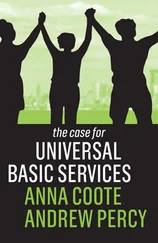Universal responsibility
First, I should mention that I do not believe in creating movements or espousing ideologies. Nor do I like the practice of establishing an organization to promote a particular idea, which implies that one group of people alone is responsible for the attainment of that goal, while everybody else is exempt. In our present circumstances, none of us can afford to assume that somebody else will solve our problems; each of us must take his or her own share of universal responsibility. In this way, as the number of concerned, responsible individuals grows, tens, hundreds, thousands or even hundreds of thousands of such people will greatly improve the general atmosphere. Positive change does not come quickly and demands ongoing effort. If we become discouraged we may not attain even the simplest goals. With constant, determined application, we can accomplish even the most difficult objectives.
Adopting an attitude of universal responsibility is essentially a personal matter. The real test of compassion is not what we say in abstract discussions but how we conduct ourselves in daily life. Still, certain fundamental views are basic to the practice of altruism.
Though no system of government is perfect, democracy is that which is closest to humanity's essential nature. Hence those of us who enjoy it must continue to fight for all people's right to do so. Furthermore, democracy is the only stable foundation upon which a global political structure can be built. To work as one, we must respect the right of all peoples and nations to maintain their own distinctive character and values.
In particular, a tremendous effort will be required to bring compassion into the realm of international business. Economic inequality, especially that between developed and developing nations, remains the greatest source of suffering on this planet. Even though they will lose money in the short term, large multinational corporations must curtail their exploitation of poor nations. Tapping the few precious resources such countries possess simply to fuel consumerism in the developed world is disastrous; if it continues unchecked, eventually we shall all suffer. Strengthening weak, undiversified economies is a far wiser policy for promoting both political and economic stability. As idealistic as it may sound, altruism, not just competition and the desire for wealth, should be a driving force in business.
We also need to renew our commitment to human values in the field of modern science. Though the main purpose of science is to learn more about reality, another of its goals is to improve the quality of life. Without altruistic motivation, scientists cannot distinguish between beneficial technologies and the merely expedient. The environmental damage surrounding us is the most obvious example of the result of this confusion, but proper motivation may be even more relevant in governing how we handle the extraordinary new array of biological techniques with which we can now manipulate the subtle structures of life itself. If we do not base our every action on an ethical foundation, we run the risk of inflicting terrible harm on the delicate matrix of life.
Nor are the religions of the world exempt from this responsibility The purpose of religion is not to build beautiful churches or temples, but to cultivate positive human qualities such as tolerance generosity and love. Every world religion, no matter what its philosophical view, is founded first and foremost on the precept that we must reduce our selfishness and serve others. Unfortunately, sometimes religion itself causes more quarrels than it solves. Practitioners of different faiths should realize that each religious tradition has immense intrinsic value and the means for providing mental and spiritual health. One religion, like a single type of food, cannot satisfy everybody. According to their varying mental dispositions, some people benefit from one kind of teaching, others from another. Each faith has the ability to produce fine, warmhearted people and despite their espousal of often contradictory philosophies, all religions have succeeded in doing so. Thus there is no reason to engage in divisive religious bigotry and intolerance, and every reason to cherish and respect all forms of spiritual practice.
Certainly, the most important field in which to sow the seeds of greater altruism is international relations. In the past few years the world has changed dramatically. I think we would all agree that the end of the Cold War and the collapse of communism in Eastern Europe and the former Soviet Union have ushered in a new historical era. As we move through the 1990s it would seem that human experience in the twentieth century has come full circle.
This has been the most painful period in human history, a time when, because of the vast increase in the destructive power of weapons, more people have suffered from and died by violence than ever before. Furthermore, we have also witnessed an almost terminal competition between the fundamental ideologies that have always torn the human community: force and raw power on the one hand, and freedom, pluralism, individual rights and democracy on the other. I believe that the results of this great competition are now clear. Though the good human spirit of peace, freedom and democracy still faces many forms of tyranny and evil, it is nevertheless an unmistakable fact that the vast majority of people everywhere want it to triumph. Thus the tragedies of our time have not been entirely without benefit, and have in many cases been the very means by which the human mind has been opened. The collapse of communism demonstrates this.
Although communism espoused many noble ideals, including altruism, the attempt by its governing elites to dictate their views has proved disastrous. These governments went to tremendous lengths to control the entire flow of information through their societies and to structure their education systems so that their citizens would work for the common good. Although rigid organization may have been necessary in the beginning to destroy previously oppressive regimes, once that goal was fulfilled, the organization had very little to contribute towards building a useful human community. Communism failed utterly because it relied on force to promote its beliefs. Ultimately, human nature was unable to sustain the suffering it produced.
Brute force, no matter how strongly applied, can never subdue the basic human desire for freedom. The hundreds of thousands of people who marched in the cities of Eastern Europe proved this. They simply expressed the human need for freedom and democracy. It was very moving. Their demands had nothing whatsoever to do with some new ideology; these people simply spoke from their hearts, sharing their desire for freedom, demonstrating that it stems from the core of human nature. Freedom, in fact, is the very source of creativity for both individuals and society. It is not enough, as communist systems have assumed, merely to provide people with food, shelter and clothing. If we have all these things but lack the precious air of liberty to sustain our deeper nature, we are only half human; we are like animals who are content just to satisfy their physical needs.
I feel that the peaceful revolutions in the former Soviet Union and Eastern Europe have taught us many great lessons. One is the value of truth. People do not like to be bullied, cheated or lied to by either an individual or a system. Such acts are contrary to the essential human spirit. Therefore, even though those who practice deception and use force may achieve considerable short-term success, eventually they will be overthrown.
On the other hand, everyone appreciates truth, and respect for it is really in our blood. Truth is the best guarantor and the real foundation of freedom and democracy. It does not matter whether you are weak or strong or whether your cause has many or few adherents, truth will still prevail. The fact that the successful freedom movements of 1989 and after have been based on the true expression of people's most basic feelings is a valuable reminder that truth itself is still seriously lacking in much of our political life. Especially in the conduct of international relations we pay very little respect to truth. Inevitably, weaker nations are manipulated and oppressed by stronger ones, just as the weaker sections of most societies suffer at the hands of the more affluent and powerful. Though in the past, the simple expression of truth has usually been dismissed as unrealistic, these last few years have proved that it is an immense force in the human mind and, as a result, in the shaping of history.
Читать дальше












